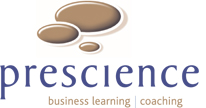We have recently started selected activities based on a framework that members of the team are now accredited to provide.
Vertical Leadership Development & The Harthill Leadership Development Framework (LDF)
© Copyright Harthill Consulting Limited
The LDF has been developed by David Rooke and William Tolbert and is based on over thirty years research into factors distinguishing leaders’ ‘Action Logics’ and the impact this has on their leadership style and effectiveness.
The questionnaire and overall LDF assesses and identifies differing levels of development – the Action Logics – that people deploy in how they interpret and make sense of their situation and circumstance.
Each level of development is attributed to the individual’s ‘Complexity of Meaning Making’ – how they interpret and learn from experience and which is developed in stages. At each new ‘level’ or stage individuals overcome the limitations associated with the previous levels, improving their ability to see a new perspective and act more effectively.
As Rooke and Tolbert state “The stage you are ‘in’ has a profound impact on your leadership approach and capability because it affects where you place attention, your underlying assumptions, the inferences you draw and crucially what actions you will take”.
Initially brought more to the public eye through their 2005 Harvard Business Review ‘Seven Transformations of Leadership’ (HBR April 2005) the LDF and the Vertical Leadership Development it supports is arguably an idea whose time has come. This ability and competence in complexity of meaning making is increasingly essential in today’s operating environment, characterised as it is by uncertainty, ever increasing demands and an operating paradigm encompassing all the internal and external sustainability drivers that now pertain for today’s leaders.
These stages of vertical development are broadly categorised as pre and post conventional. Later stages of Vertical Development correlate with ability to take effective decisions in situations of increasing complexity and ambiguity.
The main LDF stages identified are:
Pre-Conventional Stages
Level 1 – Opportunist (5% of profiled population): focuses on personal ‘wins’ and sees others as a resource to exploit or compete with. Holds “the ends justify the means” view. Legitimises his/her approach on the basis of competitive win/lose basis for actions.
Level 2 – Diplomat (12% of profiled population): focuses on socially accepted behaviour and approval. Avoids overt conflict. Wants to belong and conforms to group norms. Uses acceptance and adherence to protocol to get others to follow. Lower capacity to reappraise how things are done.
Level 3 – Expert (38% of profiled population): focuses on expertise, procedure and efficiency. Rules by reason, logic and expertise. Seeks the right way before acting. Prefers proven technical approaches. Gives personal attention to detail and seeks perfection. Strong as an individual contributor, but has limited vision and potential difficulty with collaboration.
Level 4 – Achiever (30% of profiled population): meets strategic goals and improves performance. Effectively achieves goals through teams. Juggles time and demands. Well suited to managerial roles. Pragmatic, action and goal oriented. Has difficulty questioning existing management systems and operates toward established / conventional goals and measures.
Post-Conventional Stages
Level 5 – Individualist (10% of profiled population): interweaves competing personal and corporate systems. Inclined to develop original and creative solutions and develops a participative approach. Holds a more systemic view of issues and broader vision. Effective in venture and consulting roles. Can engage in discussions that are unproductive and hold ideas that may lack pragmatism.
Level 6 – Strategist (4% of profiled population): generates organisational and personal transformations. Develops a more proactive approach that anticipates long term trends. Significant interest in global sustainability issues. Works to integrate economic, social and environmental aspects – reframes. Effective transformational leader and cultivates changes in values.
Level 7 – Strategist (1% of profiled population): capable of generating wide transformation. Re-centres the organisation’s mission with regard to social and environmental responsibilities. Has concern for authenticity and holds a complex and integrated vision. Risks scattering efforts and may lose touch with the primary focus of the organisation.
Rooke and Tolbert write that whilst few leaders have explored their individual Action Logic and how to develop it, they should, because ‘leaders who do undertake a voyage of personal understanding and development can transform not only their own capabilities but also those of their companies.’
We are currently in the process of setting up selected pilot groups based on the LDF framework that incorporate 1:1 coaching, group review and Action Inquiry / Learning. These pilot programmes will be run on a reduced fee basis and if you think these may be of interest please contact us at info@prescience.eu.com



